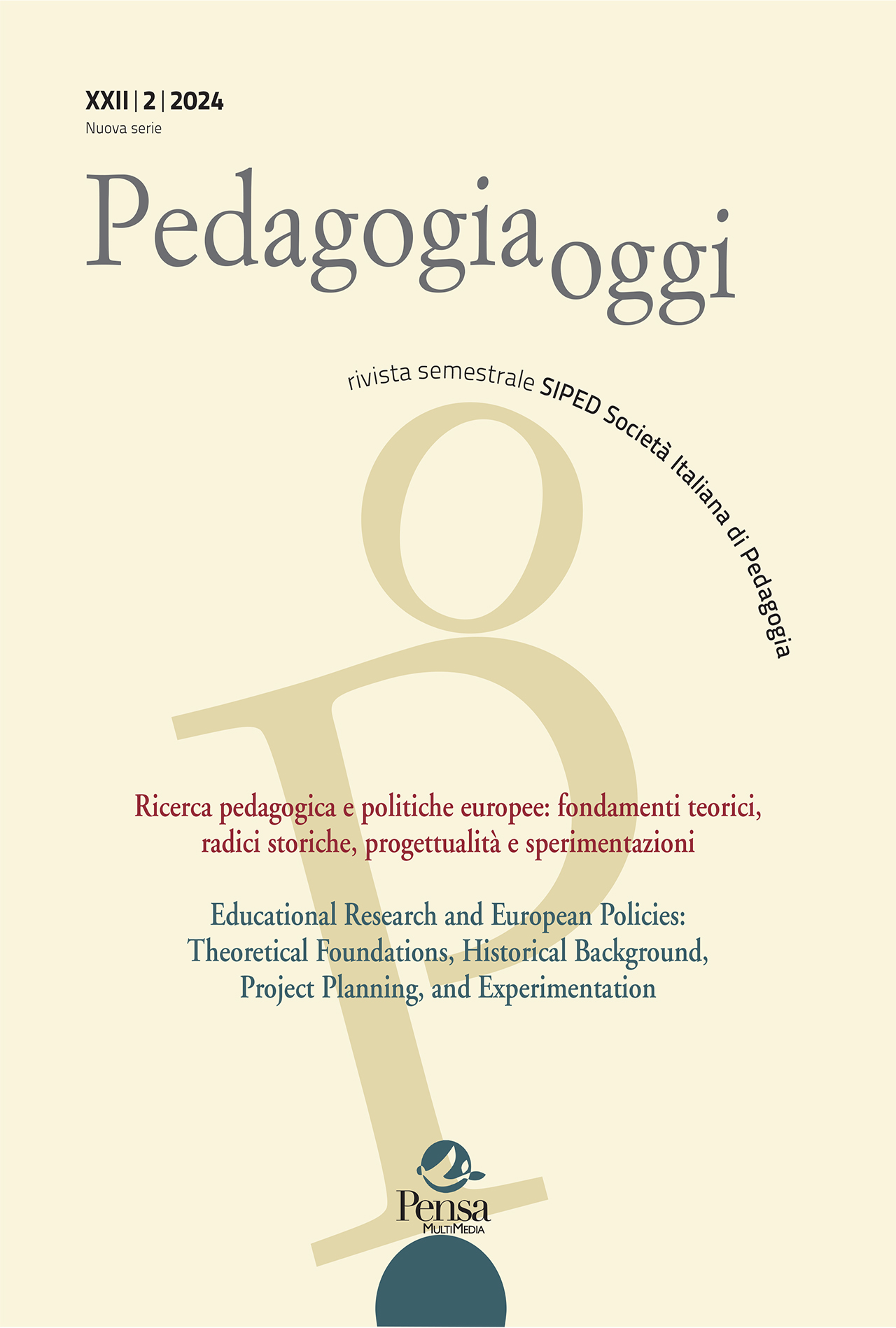Riflessioni autobiografiche e memoria: Un approccio pedagogico narrativo in emergenza
DOI:
https://doi.org/10.7346/PO-022024-30Parole chiave:
pedagogia dell’emergenza, narrazione, memoria, riprogettazione esistenzialeAbstract
La narrazione risulta una pratica che accompagna la storia dell’uomo occidentale sin dal tempo in cui i Greci coniarono la nota espressione epimelestai eautou.
Il dispositivo autobiografico è divenuto uno dei topoi della ricerca contemporanea in vari ambiti conoscitivi, non ultimo, quello pedagogico per una ragione in particolare, che cercheremo di spiegare nel presente contributo: come processo di assunzione di responsabilità e “cura di sé”, come interrogazione sulla propria identità di soggetto inserito all’interno di un gruppo e di una storia collettiva. La pedagogia dell'emergenza utilizza il dispositivo narrativo per accompagnare i soggetti investiti dall’insorgere della crisi a riflettere sulle proprie esperienze, ricostruendone il significato e inserendole in un contesto culturale condiviso. In particolare, si analizza l’autobiografia educativa che svolge una duplice funzione epistemica, stimolando processi di elaborazione della memoria e conferendo senso alle esperienze. La memoria, attraverso fasi come la rievocazione, il ricordo, la rimembranza e il rammentare, diventa un processo pedagogico di iniziazione alla scrittura della propria autobiografia per un ritorno all’educazione alla memoria.
##submission.downloads##
Pubblicato
Fascicolo
Sezione
Licenza
Copyright (c) 2025 Anna Paola Paiano, Silvia Nanni

TQuesto lavoro è fornito con la licenza Creative Commons Attribuzione 4.0 Internazionale.




